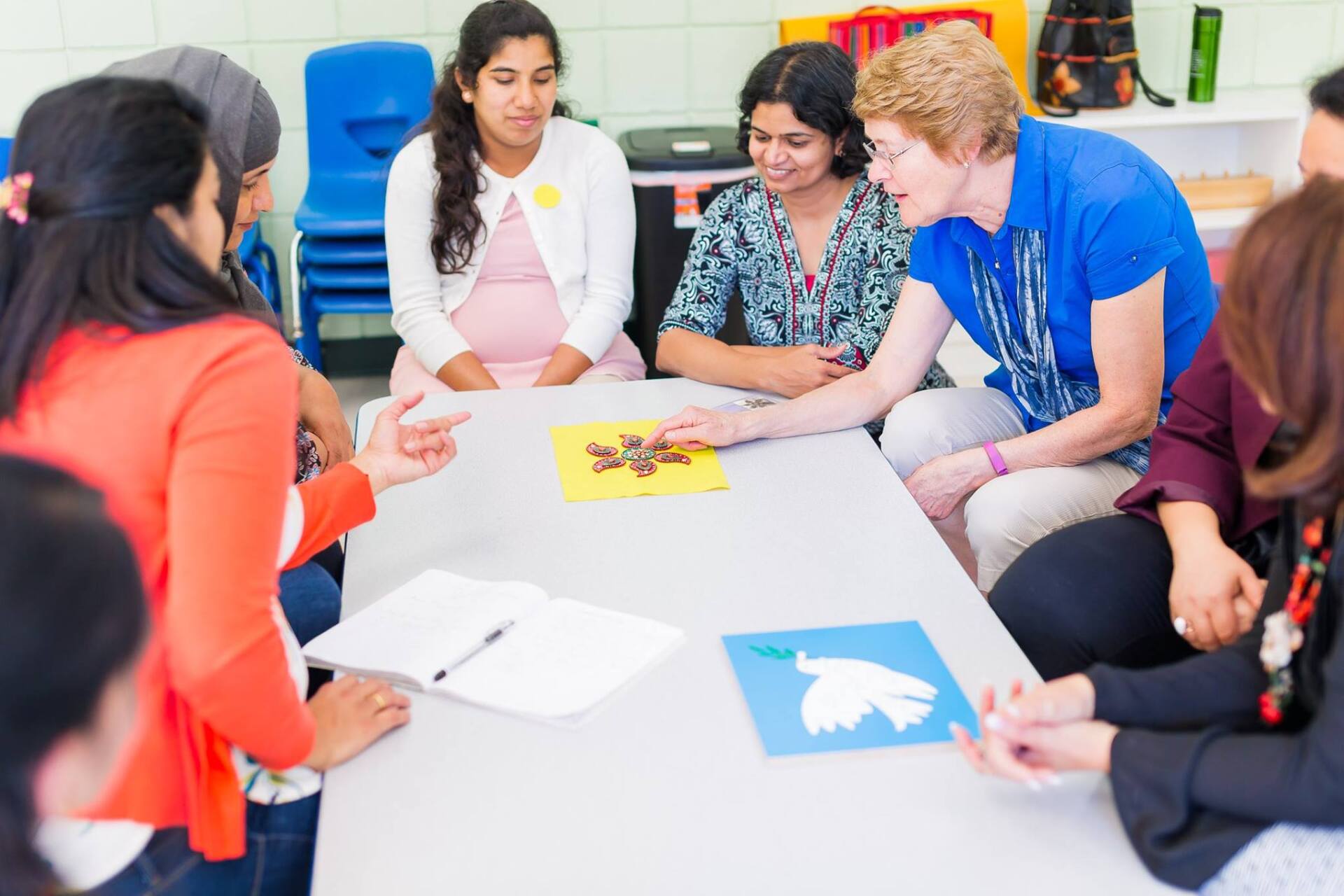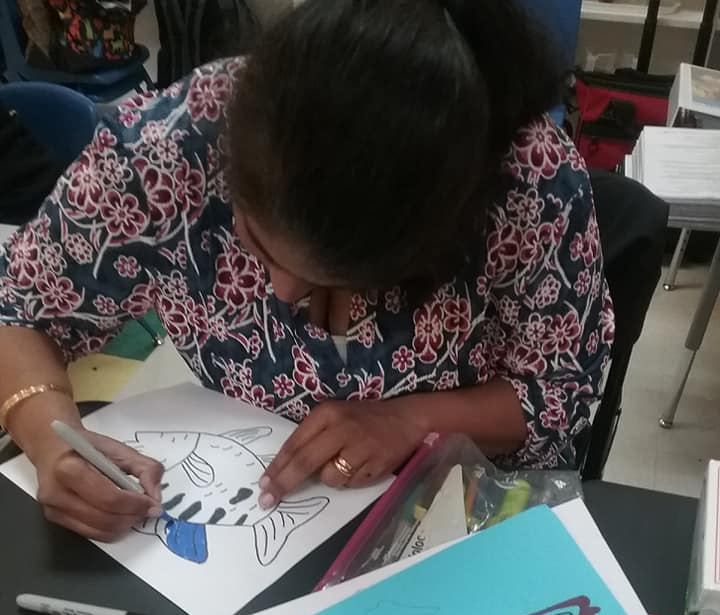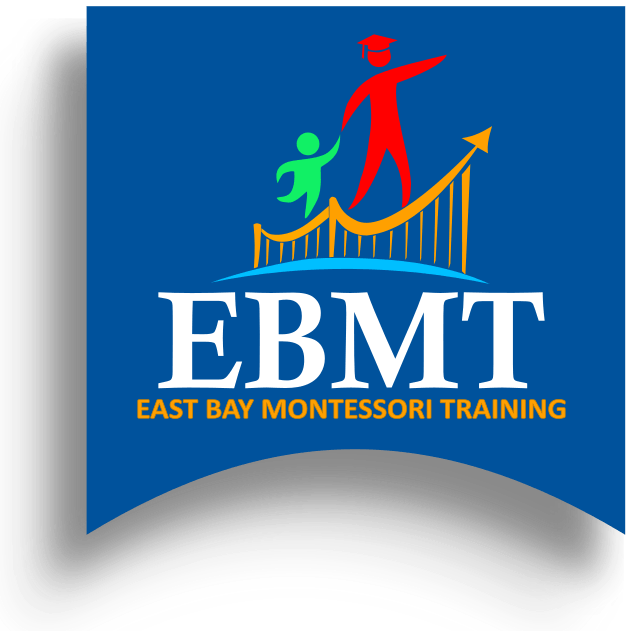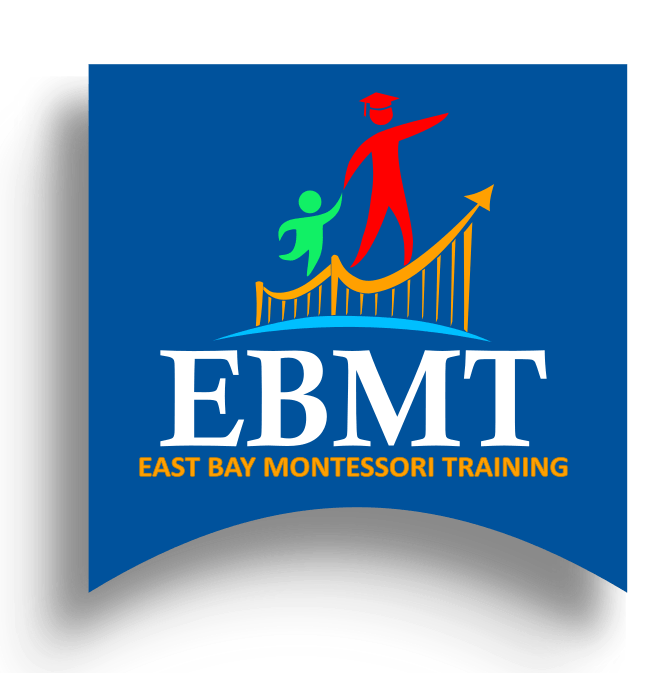Early Childhood Education Teacher Training
Next Cohort Starting July 2024

ABOUT PROGRAM
EBMT is a training program open to any adult interested in teaching Montessori education to children 2 1/2-6 years of age.

PROGRAM HIGHLIGHTS
There are 13 different course to be taken over 18 months.
Our classes meet on Saturday starting in January and continuing for 18 months

PROGRAM REQUIREMENTS
EBMT admits students without regard to race, religion, sex, age, national, or ethnic origin.
All students must have at least a high school degree or GED , however a Bachlor's degree is prefered.
Professional-level English language proficiency in reading comprehension, vocabulary, note-taking, and written expression is required. Writing proficiency sample is required for anyone without a Bachlor's degree.
All students are expected to be able to use a computer with word processing skills.
Every student must be eligible to work with children and be willing to have their fingerprints checked.
Courses
-
Philosophy (3 units)
This course discusses the beginning of the Montessori Method and philosophy as developed by Dr. Montessori, and describes its evolution over the years. It introduces adult learners into the specific aspects of the Montessori Philosophy such as the absorbent mind, the child’s sensitive periods, the logical-mathematical mind, and the spiritual and moral development of the child, and how these concepts are applied in the classroom.
-
Practical Life (3 units)
Adult learners will explore the philosophy and rationale of Dr. Maria Montessori’s practical life curriculum, which includes ground rules, grace and courtesy lessons, and the development and refinement of movement, care of person, care of the environment, food preparation, health and nutrition.
-
Sensorial (3 units)
This course prepares adult learners to understand the philosophy and rationale of the Montessori sensorial curriculum and the development and refinement of the child’s senses through Montessori’s specially-designed sensorial materials.
-
Math (3 units)
In this course, adult learners will explore the philosophy and rationale of the Montessori curriculum in the mathematics area and learn the presentation of the specially-designed Montessori math materials. The Mathematics curriculum is designed to aid in the development of the child’s mathematical mind, and the acquisition of concepts and skills from concrete to abstract including introduction to numbers, counting, decimals, the four basic operations, and fractions.
-
Language (3 units)
This course encompasses the philosophy and rationale of Montessori’s Language Arts area materials and exercises including vocabulary development, receptive and expressive language experiences, visual and auditory perceptual experiences, and reading and writing development.
-
Physical and Life Sciences (1.5 units)
This course discusses the philosophy and rationale of the Physical and Life Sciences curriculum and materials aiding in nurturing a sense of wonder in the world around us. The curriculum includes the study of Botany and Zoology, the earth’s composition and physical science.
-
Social Studies/History and Geography (1.5 units)
Adult learners will be introduced to the philosophy and rationale of the curriculum area of Social Studies and History and Geography, which includes the study of globes, landforms, countries of the world and their flags, multicultural studies, the timeline of life, and the concept of time.
-
Classroom Leadership (3 units)
In this course, adult learners will explore Dr. Maria Montessori’s philosophy of teaching as it relates to classroom leadership strategies, classroom management techniques, design and preparation of the child’s environment, curriculum planning and teaching strategies, positive discipline and communication, and assessment of children.
-
Observation (1.5 units)
This course was designed to provide adult learners with skills used in the assessment of children, which includes strategies for direct observation of children, documentation of behavior and learning patterns, and techniques for applying data gathered for designing the curriculum and communicating clear expectations and feedback with children and their parents.
-
Art, Music, Movement (2 units)
This course covers the philosophy and rationale of the Art, Music, and Movement curriculum with an overview of art and music appreciation and history and a wide range of basic art techniques for the classroom such as drawing and coloring, collage, sculptures, and kirigami. Through music and movement demonstrations, the use of live instruments, and multimedia sources, adult learners will be provided a framework for teaching music and movement in a Montessori classroom using techniques such as the use of rhythm and locomotor skills in line activities.
-
Parent Involvement/Education and Child, Family, and Community (1.5 unit)
This course focuses on the philosophy and rationale for parent involvement in the child’s education, raising the level of awareness of multicultural families and diversity, and their impact on a child’s behavior, values, and attitudes. It discusses options for collaboration with families, and application and implementation of strategies.
Satisfies CA State requirement for Child Family and Comunity units
-
Practicum Teaching (6 units)
The Practicum Phase of the program provides adult learners a supervised teaching and learning experience and a period of observation, internalization of concepts, and further study to bring together the theory and practice of Montessori education. Student teaching practicum requires a minimum of 3 hours a day, 5 days a week, for a 9-month school year at an approved practicum school site.
-
Child Development (3 units)
Through lectures, readings, and video vignettes, adult learners will explore the theories and stages of development as it relates to a child’s physical, cognitive, emotional, and social abilities. It discusses the development of the child from birth through six, comparing the philosophies of past and current theorists such as Piaget, Maslow, and Montessori.
Satisfies CA State requirement for Child Growth and Development Units

